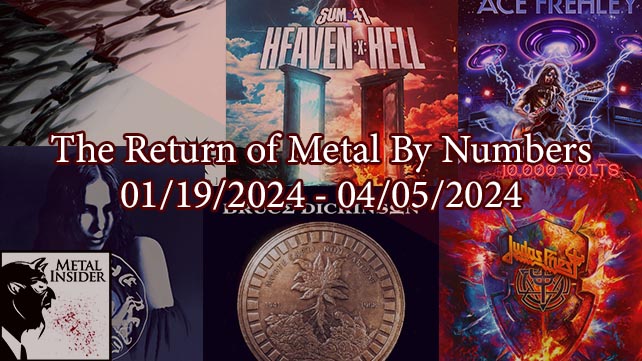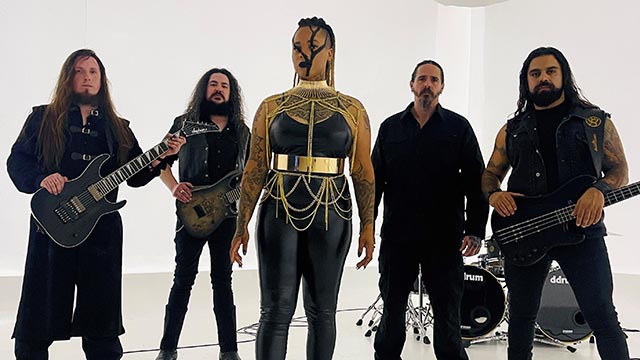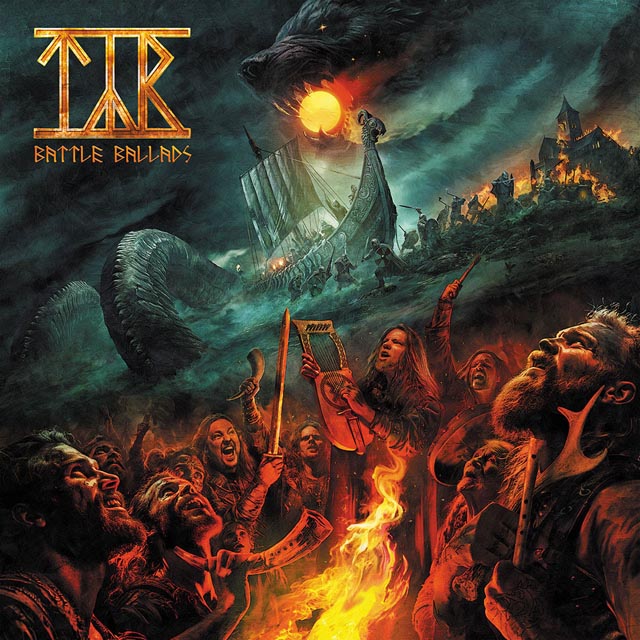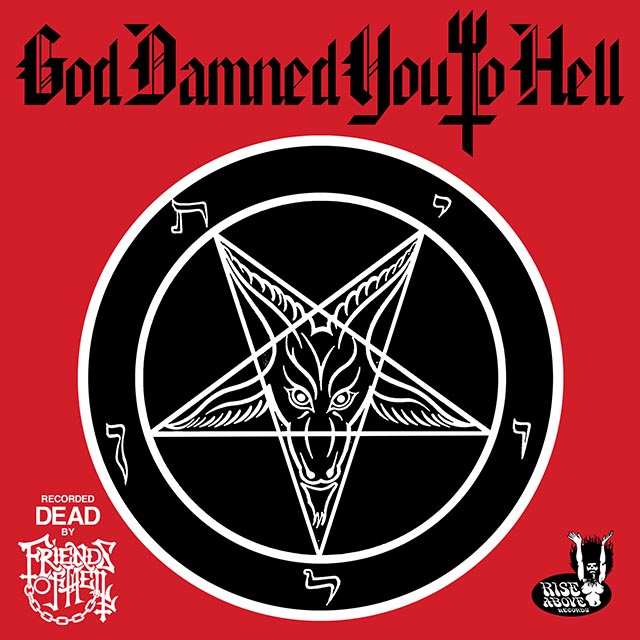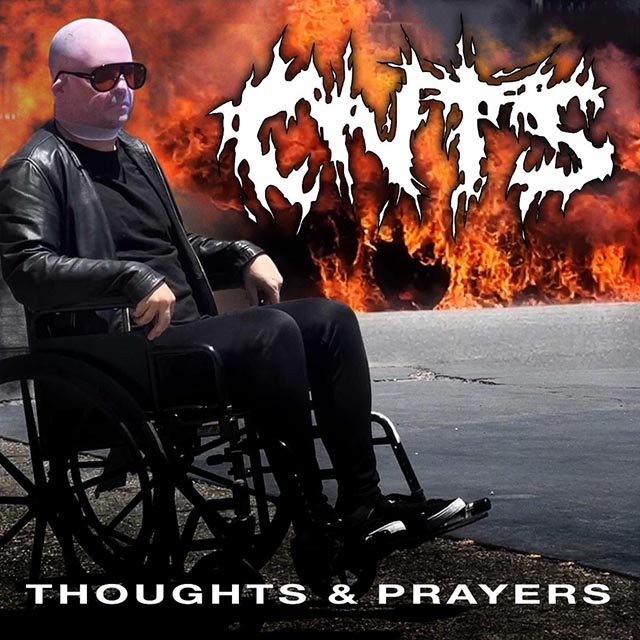 Clutch has been a force in the rock and metal world since their formation nearly 20 years ago. Their unique sound has inspired many to look into guitars, keyboards and harmonicas for sale and play themselves. They’ve progressed from a punk/hardcore band to the all-encompassing sound of their latest album – and first Clutch album for their own WeatherMaker Music – Strange Cousins From the West (out on July 7). Drummer Jean-Paul Gaster spoke to Metal Insider about their progression as a band, their preferred touring situation, and the death of Wino bassist Jon Blank.
Clutch has been a force in the rock and metal world since their formation nearly 20 years ago. Their unique sound has inspired many to look into guitars, keyboards and harmonicas for sale and play themselves. They’ve progressed from a punk/hardcore band to the all-encompassing sound of their latest album – and first Clutch album for their own WeatherMaker Music – Strange Cousins From the West (out on July 7). Drummer Jean-Paul Gaster spoke to Metal Insider about their progression as a band, their preferred touring situation, and the death of Wino bassist Jon Blank.
We’re giving a Metal Insider reader a chance to win an exclusive WeatherMaker Music shirt! To be entered to win, just leave a comment stating what your favorite Clutch song is. One winner will be picked at random on Friday, June 12. Double entries will be disqualified, open to US residents only.
On Strange Cousins From The West, it seems like the band went back to a more guitar-centric sound over the keyboards and harmonica that were on the last few records. Was this a conscious decision or more just the natural evolution of Clutch?
I think it’s the evolution. I think we’ve always been unafraid to change things up. We decided to bring the band back to a more basic format, and consequently, the tunes became more focused. I think there’s a lot more emphasis on the guitars this time around, which is a good thing. We’ll probably use those elements, keyboards and harmonicas and whatever else, in the future, it’s always fun to experiment. I think that each record is the response to the last thing we recorded, and it’s always unintentional. There’s no meeting where we say ‘we’re going to strip this one down and sound like AC/DC.’ More than anything, it’s just whatever music we’re listening to at the time, what everybody’s moods are, the bands we’ve been on tour with, and one way or another, all of those things go towards influencing what the next sound is going to be.
In addition to headlining quite a bit, you’ve also played festivals like Bonaroo and gone on the road opening for Coheed and Cambria. What’s the difference between doing your own thing and being a band on a festival or opening for people that aren’t necessarily there to see just you?
Since the beginning, we’ve always tried to play with bands that weren’t necessarily just like us. That goes back to the days of playing with Monster Magnet, Pantera, Sepultura, Prong. These are all bands that we’ve listened to at some point, but didn’t necessarily sound like. One of the best tours we did early on was the Marilyn Manson tour. We were convinced that your average Manson fan would have little or no use for Clutch. It was an interesting thing, it was long, three months and close to 80 dates. The next tour we did, we went out, and there were a whole bunch of Marilyn Manson shirts there. It goes to show. You play in front of 5 or 800 people a night, and of those people, maybe they’ll bring 12 friends next time, and that’s how it goes. It’s a slow build, but we’re not afraid to play in front of anyone. It’s a lot of fun to play a festival. Most of the time, you’re going to play in front of a band where most of the fans don’t know who you are. We look at it as a challenge. We just get out there and try to put on the best show that we can.
You’ve run the gamut from independent to major to independent to owning WeatherMaker Music. What are the advantages of being on your own label?
It’s easier to make records knowing that there’s not going to be any pushback from the label, whether it’s about the material you want to record, or when the record’s going to be released, or how much the record is going to cost. All of these variables go into making a record, and it can be really stressful. It’s very empowering to know we can record whatever we want to record and release it. We’re looking forward to being able to do different projects, different experiments and make different kinds of records. It’s going to be better for the label and the fans. Again, Clutch fans have a really diverse sense of music, and they’re very appreciative of different kinds of things.
Are there any plans to put out anything other than Clutch-related projects on WeatherMaker?
Not yet. We made an agreement that we would not even address something like that for two years, until the label was really up and running. On the one hand, it’s really exciting to think that we could put out our buddies’ bands. But the whole thing about being on a label and having to deal with the label execs, I don’t ever want to be in the position where I’m like ‘hey, it was really fun putting out your last record, but it didn’t sell anything, so we don’t want to do another one.’ I feel like the music that we make as Clutch and Bakerton and whatever may come from that core entity is going to keep us really busy. So while the idea of putting out someone else’s music is exciting, it opens up a whole can of worms, and that’s a part of the industry I really don’t want to deal with. It leaves a bad taste in my mouth.
Are there any current drummers you really pay attention to?
In the rock or metal scene, there’s not a lot of super exciting guys out there. I always go back to Brann Dailor of Mastodon. He’s a phenomenal player with tons of chops. But still has a great feel for the drums. On the Sounds of the Underground tour, we had the opportunity to see Gene Hoglan play, and he’s a great example of what great metal drumming is. A lot of bands we play with these days rely on triggers and huge drum kits, but to me, that’s not really where it’s at. It’s about having more of a groove. As far as drummers that I really pay attention to outside of the metal scene, I really like Stanton Moore a lot, I like Johnny Vidakovich, who actually gave lessons to Stanton. I had the opportunity to study with him one afternoon, and that was really exciting. I like groove guys mostly.
After playing on the Wino album and doing some shows with him, his bassist Jon Blank died. Did you know him well?
We had a brief but really successful run in Europe. It was an amazing experience, and when we got back, John passed suddenly. That was shitty. Its one thing to rehearse and learn some songs with a guy and make a record, but it’s a completely different thing to actually go on tour, especially with a bass player. The way I play, I very much rely on having a solid bass player there, and believe in the concept of a rhythm section. Over the course those few weeks, I really got to know him and he got to know me, and we understood the way each other moved and what to listen from the other guy. When Jon passed, it was shitty, because we’d done a lot of work and really made some headway and better understood each other. That got taken away prematurely, and I’m really still pretty upset about that. It’s shocking, but this is rock and roll, and this is what happens. It’s not all awesome. Drugs are bad and stay away from them.
There are a lot of people that view Blast Tyrant as a turning point for the band. Do you agree, or just see it as a natural progression?
I think it’s been a natural progression, but I certainly can’t discount the influence of Machine, who produced the album. I think we learned a lot from that guy, in fact, more than we thought at the time. Up until then, it was really a struggle for us to put records together because we were constantly thinking about songs that might get the label excited about wanting to make a record. As time went on with these labels, it started to get more and more difficult, and we started to question ourselves as to how to put songs together. We learned by working with Machine that it’s really not that difficult. You’ve just got to think about a few good parts and really concentrate on what’s happening lyrically. I think there was also an evolution of my own playing around that time. I realized a drummer’s role could not only be a rhythmical one, but also you could also complement what the lead voice was doing, whether it’s vocals, a guitar solo, or marimba. Whatever the lead voice is saying, it’s up to me as a drummer to respond to that and better support that lead voice. That came from Machine, and I don’t know if he ever intended for that to be a lesson, but that’s something I walked away with from that session, and it’s very important.

